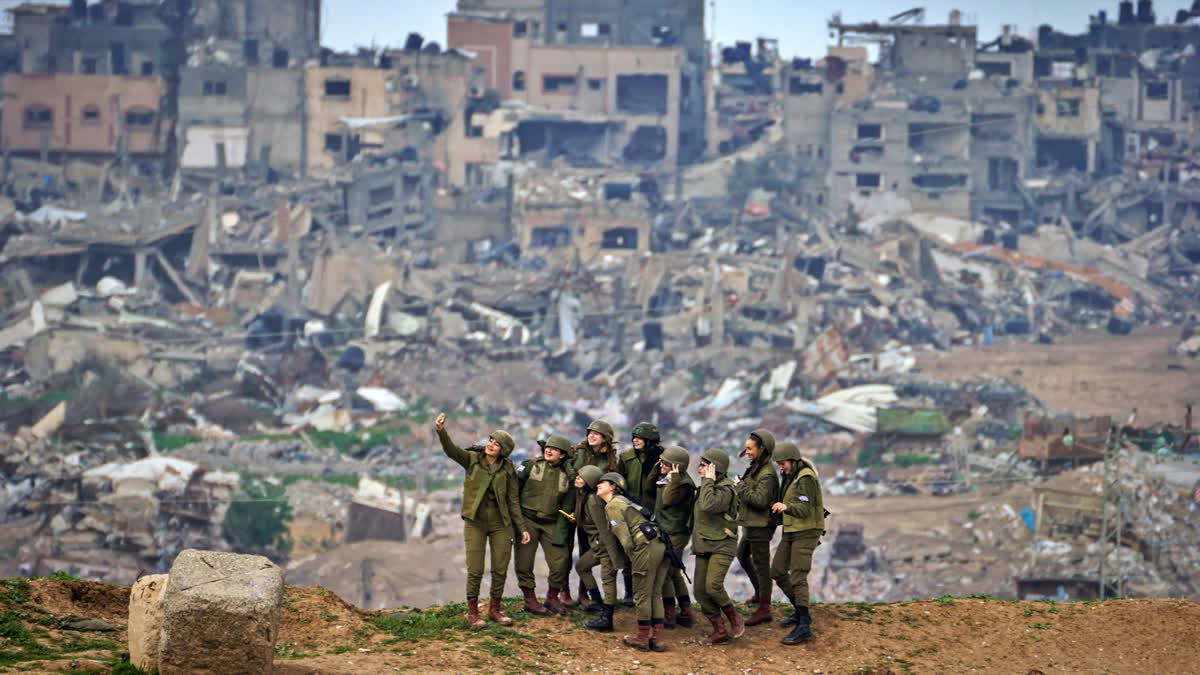Geneva: Surging conflicts and the climate crisis will leave as many as 305 million people in need in 2025, the UN said on Wednesday as it appealed for more than $47 billion to deliver vital aid next year.
“The world is on fire…We are dealing with a polycrisis right now globally and it is the most vulnerable people in the world who are paying the price," the United Nations' new humanitarian chief Tom Fletcher told reporters in Geneva, acknowledging he was looking ahead to 2025 with "dread".
UN says world on fire due to surging conflicts and climate; crisis seeks $47 billion for aid in 2025. (AFP) "We are dealing with the impact of conflicts - multiple conflicts - and crises of longer duration and of more intense ferocity,” he said. With brutal conflicts spiralling in places like Gaza, Sudan and Ukraine, and as climate change and extreme weather take an ever-heavier toll, the UN estimated that 305 million people globally will need some form of emergency assistance next year.
Fletcher warned that swelling inequality combined with the convergence of conflict and climate change had created a "perfect storm" of needs. Launching the Global Humanitarian Overview, he acknowledged that the UN and its partners would not be able to reach all of those in need.
According to the United Nations Office for the Coordination of Humanitarian Affairs (OCHA), it is expected that of the 305 million in need, only 190 million will be reached (around 62%).
The annual appeal by UN agencies and other humanitarian organisations is seeking $47.4 billion for 2025 -- slightly less than the appeal for this year -- which it said was enough to provide assistance to the 189.5 million most vulnerable people. "There's 115 million that we won't be able to reach" with this plan, Fletcher acknowledged.
'Ruthless'
Pointing to significant "donor fatigue" hitting humanitarian operations around the world, he stressed the need to lay out a "realistic" plan, which will require prioritisation and making "really tough, tough choices". "We've got to be absolutely focused on reaching those in the most dire need, and really ruthless," he said.
As of last month, only 43 percent of the $50-billion appeal for this year had been met. Underfunding has this year seen an 80-percent reduction in food assistance in Syria, cuts to protection services in Myanmar, and diminished water and sanitation aid in cholera-prone Yemen, the UN said.
The single biggest barriers to assisting and protecting people in armed conflict, though, were the widespread violations of international law. 2024 has already been the deadliest year for humanitarian workers, surpassing last year's toll of 280 killed. The global humanitarian system "is overstretched, it's underfunded and it's literally under attack", Fletcher said.
"We need a surge in global solidarity." Fears meanwhile abound that Donald Trump's looming return to the presidency in the United States -- the world's biggest humanitarian donor -- could see aid agency budgets cut rather than raised next year. Fletcher said he planned to "spend a lot of time in Washington" in the coming months to engage with the new administration.
'Unconscionable'
The "much tougher global climate (was) not just about America", he said, adding he planned "to bash down doors" around the world and make the argument about the need to step up. A record 123 million people were living displaced from their homes due to conflict by mid-2024, while one out of every five children globally is currently living in or fleeing conflict zones, according to UN figures.
"The suffering behind the numbers is all the more unconscionable for being man-made," Fletcher said. "Wars in Gaza, Sudan and Ukraine are marked by the ferocity and intensity of the killing, the complete disregard for international law, and the deliberate obstruction of our humanitarian movement's effort to save lives."
Numerous old crises meanwhile remain unresolved and simmering, with average humanitarian operations now spanning a decade, the UN said. "The longer they last, the bleaker the prospects," Fletcher warned, pointing out that "life expectancy drops, vaccination rates plummet, education suffers, maternal mortality skyrockets, and the spectre of famine grows".
Even more worryingly, he said, was how conflicts were increasingly converging with the climate-induced disasters that are ravaging communities, devastating food systems and driving mass displacement. "The dread I have is that those two huge drivers of need are now combining," he said. (Agency inputs)
Read More
- UN Resolution 1701 Is At The Heart Of The Israel-Hezbollah Ceasefire. What Is It?
- UN Talks In Disarray As Rough Draft Deal For Climate Cash Rejected By Developing Nations
